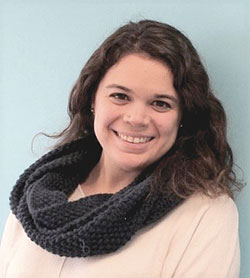
Licensed clinical social worker and outreach specialist for Adult Family Care Angela Clary.
By Angela Clary
As we know, caregiving is a fulltime job that often requires coordinating many moving pieces. Medication is usually a key part of that picture, and it often falls on caregivers to ensure that things stay on track.
Roughly 83 percent of Americans take at least one medication daily, according to the Centers for Disease Control and Prevention (CDC). Used correctly, medications are generally safe—though the CDC cautions that adverse drug reactions cause more than one million emergency room visits each year.
Allergic reactions, unexpected side effects and human error are common factors behind adverse reactions, so as a caregiver it’s important to be aware of the potential pitfalls, and to ensure prescriptions are taken properly.
The following is a quick set of tips to help family caregivers manage medications:
Know your medicines
If you are going to help with medications, it’s vital you know what you’re dealing with. Know the name of each medication, why they are taking it, and the possible side effects. Many medications have the potential for side effects, but are prescribed because the benefits likely outweigh the risk – so it’s important to know the signs of trouble. Make sure you understand the instructions and only use as directed.
List your medicines
Maintaining a comprehensive list of medications, with dosage and schedule, is helpful on several levels. It relieves the burden of trying to remember everything. It’s also a good idea to have this information handy if there is a hospitalization or another emergency. Don’t forget to list over-the-counter medications as well.
Reconcile medications
The interaction between some medicines can produce potentially life-threatening side effects, so it’s important for medical personnel to be aware of the big picture. Have an extra copy of the medication list, so you can provide it when a hospitalization occurs. Be sure to take note if anything new is added over the course of a hospital stay. Ask questions if you are concerned about how the new prescriptions might interact.
Dispose of meds properly
Nothing good comes of having a medicine cabinet filled with medications that are no longer necessary. Many medicines can be flushed down the toilet. Meds can also be thrown away, but it’s best to mix them with something unappealing, such as coffee grounds. Be sure to put the mixture in a sealed container, before putting it in the trash. Many communities also host drug takeback days. An easy way to find out about those is through the Drug Enforcement Administration website, DEA.gov.
Seek professional advice
Your doctor and pharmacist are important resources. Don’t be afraid to ask them questions, especially if you don’t understand something. Some caregiver support programs can also be helpful. Our program, Adult Family Care, helps caregivers follow the best practices on medication management, and also provides regular training on the topic.
Those are the basics of medication management, and hopefully you now feel a little more empowered to take charge of this often daunting aspect of caregiving. While the vast majority of caregivers have no formal background in medicine, it’s important to recognize that a little preparation and mindfulness can go a long way toward helping a loved one successfully manage medications.
Angela Clary is a licensed clinical social worker and outreach specialist for Adult Family Care (AFC), an Adult Foster Care provider that serves the Greater Boston, North Shore, and Merrimack Valley areas. For more information, email aclary@eldercare.org, call 617-628-2601 or visit adultfamilycare.org.












Reader Comments